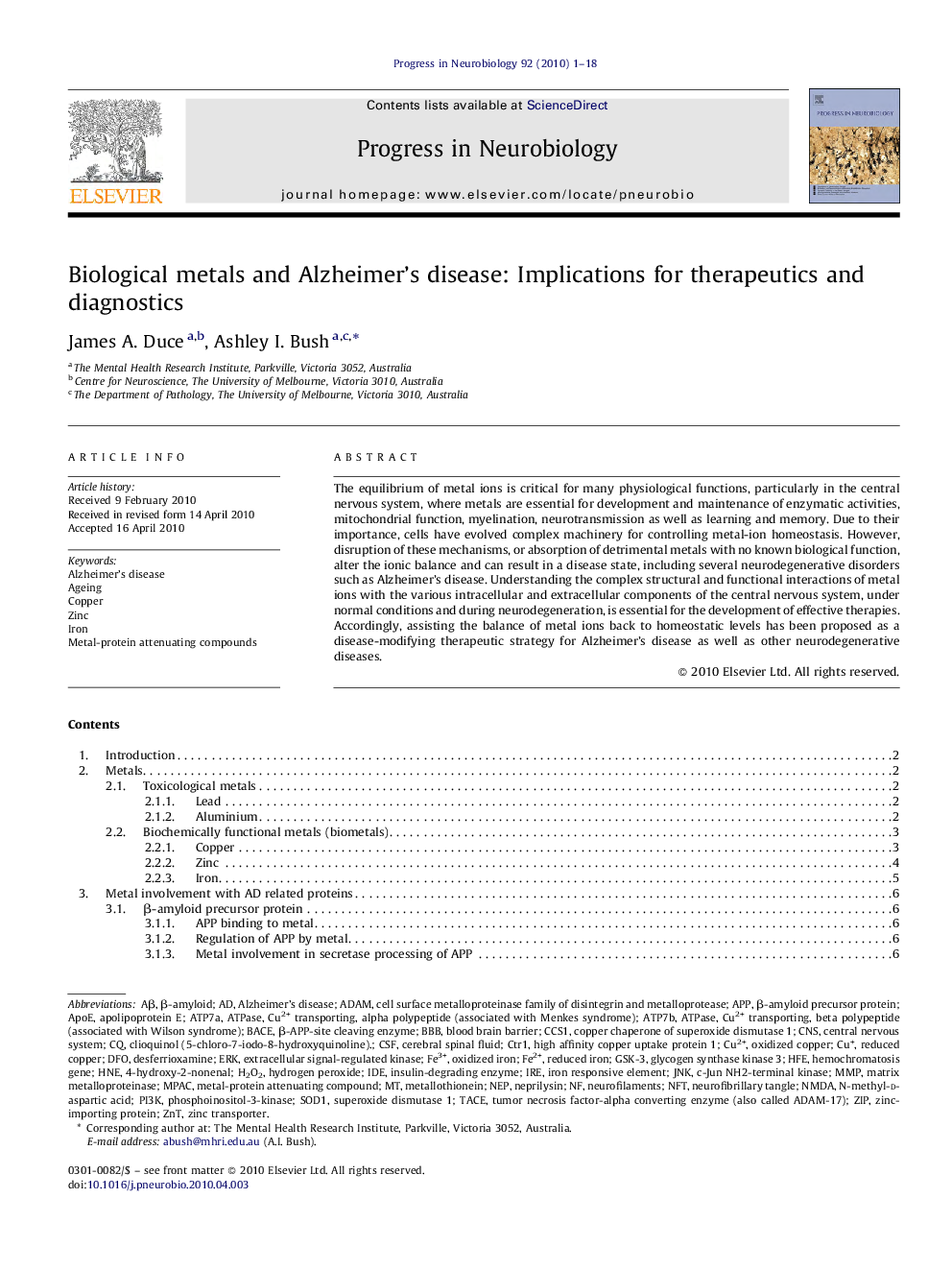| Article ID | Journal | Published Year | Pages | File Type |
|---|---|---|---|---|
| 4353539 | Progress in Neurobiology | 2010 | 18 Pages |
The equilibrium of metal ions is critical for many physiological functions, particularly in the central nervous system, where metals are essential for development and maintenance of enzymatic activities, mitochondrial function, myelination, neurotransmission as well as learning and memory. Due to their importance, cells have evolved complex machinery for controlling metal-ion homeostasis. However, disruption of these mechanisms, or absorption of detrimental metals with no known biological function, alter the ionic balance and can result in a disease state, including several neurodegenerative disorders such as Alzheimer's disease. Understanding the complex structural and functional interactions of metal ions with the various intracellular and extracellular components of the central nervous system, under normal conditions and during neurodegeneration, is essential for the development of effective therapies. Accordingly, assisting the balance of metal ions back to homeostatic levels has been proposed as a disease-modifying therapeutic strategy for Alzheimer's disease as well as other neurodegenerative diseases.
